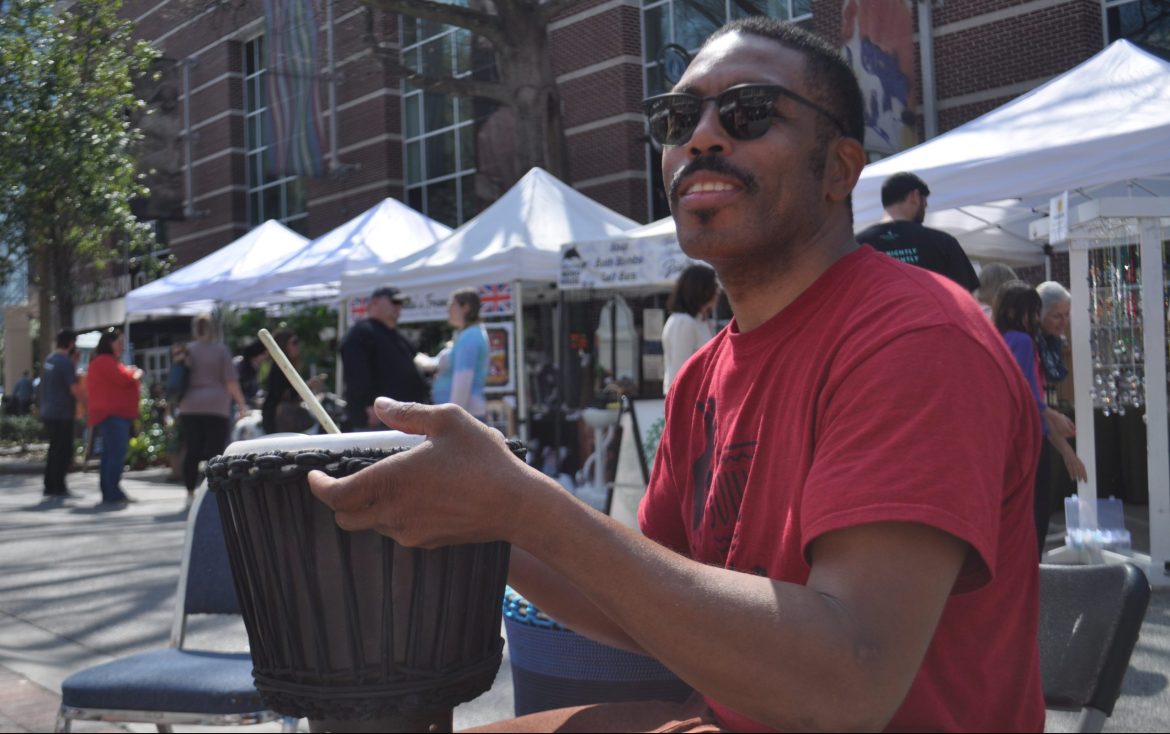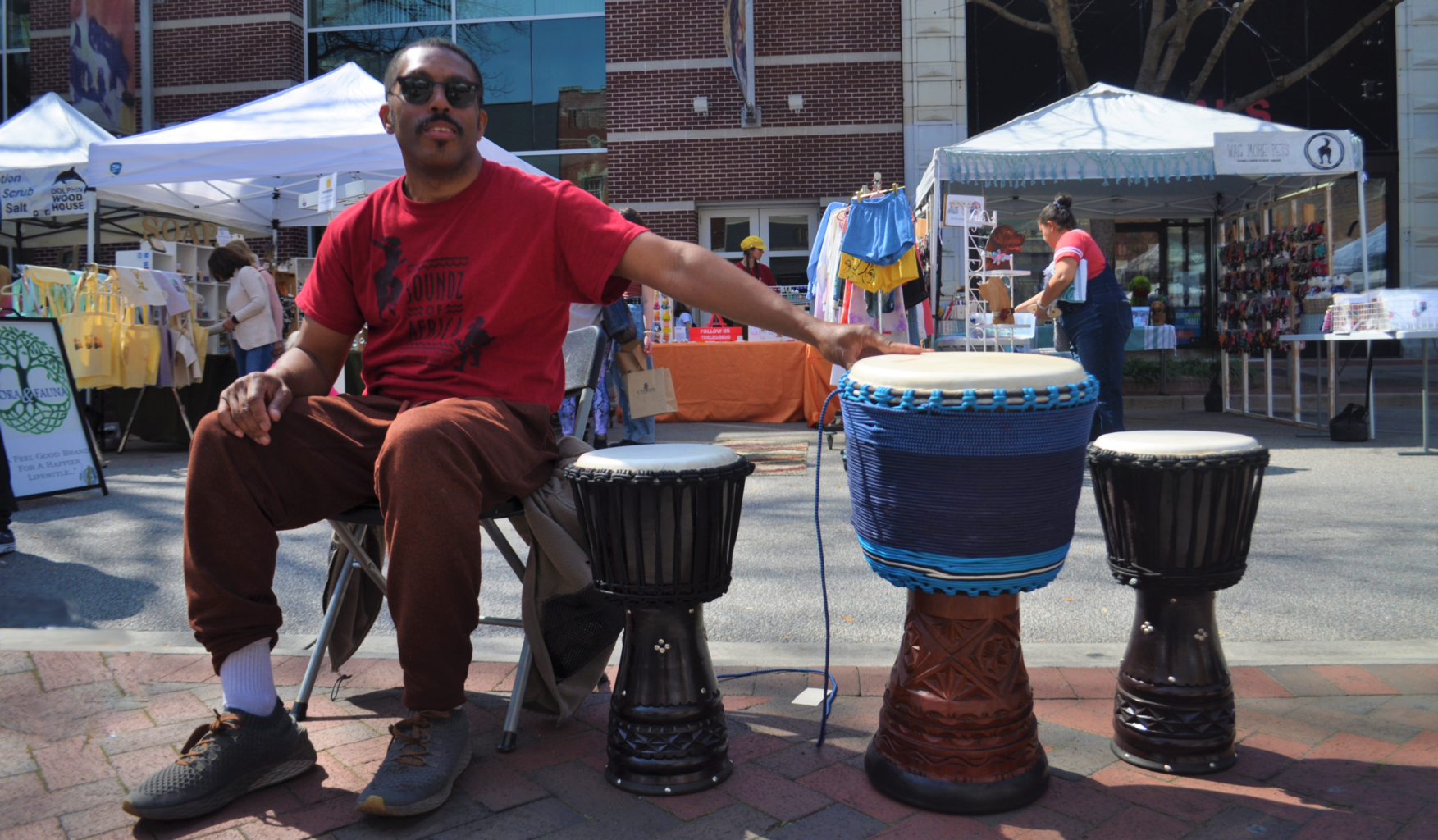Soda City Market drummer Olatunji Moussa Mosley holds a drum in the Soda City Market in Columbia, SC, on March 5th. Thomas believes part of his legacy is in teaching Olatunji how to drum.“(My) legacy really already exists because he’s real good. I just hope that society is such whereby they would realize that the unique thing about America as a society, historically and culturally, can only exist through creativity. Photo by Natalie Schliekelman
Olatunji Moussa Mosley connects with his roots and his father through drumming.
In the bustling streets of Columbia, SC, noises fill the air – the sizzling of cooking meat, dogs barking and a distant violin. However, the sound of two men playing drums draws in listeners unlike anything else.
Drummer Olatunji Moussa Mosley has been performing in the Soda City Market with his father, Thomas Mosley. Inspired by Thomas, Olatunji started drumming at a very young age.
“By me having to be around him growing up, (drumming) just got in me, I just grew up with it and it’s just a natural feeling.”
— Olatunji Moussa Mosley,
Drummer
“I started playing the drums when I was two years old. I learned from my father, being around him,” Olatunji said. “When he got here to Columbia, South Carolina, he had a new ilu drumming ensemble, and he would perform. He and some other friends from Charleston were all part of his group. And so by me having to be around him growing up, (drumming) just got in me, I just grew up with it and it’s just a natural feeling.”
Drummer Olatunji Moussa Mosley sits in Soda City Market on March 5th. According to Olatunji, three basic sounds make up the foundation of drum rhythms. “(There are) three basic sounds, you have the bass, the open, and the slap. There’s three different tones when it comes to playing rhythms. So the rhythm, lamba, that I was telling you about, you want a compliment part that goes with the rhythm,” Olatunji said. Photo by Natalie Schliekelman
Thomas believes that it was normal for Olatunji to learn drumming the way he did.
“(Olatunji) liked the sound and just started following me around drumming, because I had different types of African drumming groups that performed around the state,” Thomas said. “He was (my first child) and it’s only natural that he learned how to play the same thing that I did.”
Olatunji believes that the history of rhythms is a meaningful aspect of drumming.
“Here in South Carolina, slaves were communicating with each other by playing certain rhythms. Each rhythm that is played has a meaning to it and a history also. There’s one rhythm that’s from West Africa, Guinea, the name of it is Lamba, (which) is mostly played during weddings. Another rhythm called manjani is played during celebrations like where we are now.”
You can come here and you see (these) people that are just playing some music, and it creates a rhythm, it creates momentum and love in the environment. I think it brings a nice balance for sure, just having the music and seeing the father and son do something together.”
— Derek Blizzard
Soda City Market attendee
Soda City Market attendee Derek Blizzard witnessed how Olatunji’s music transformed the atmosphere of the street.
“You can come here and you see (these) people that are just playing some music, and it creates a rhythm, it creates momentum and love in the environment. I think it brings a nice balance for sure, just having the music and seeing the father and son do something together,” Blizzard said.
To help pass on the rhythms that he learned from his father, Olatunji is making a class to teach the next generation of drummers.
“I’m trying to start a company which is always very, very difficult,” Olatunji said. “We’d have the beginners, and the masters, the ones that know how to pick (a drum) up (and play).”
For Olatunji, drumming is a form of energy and healing.
“Drumming is like medicine, music is like medicine,” Olatunji said. “These drums, and music period, give you energy.”
This is a modal window.

